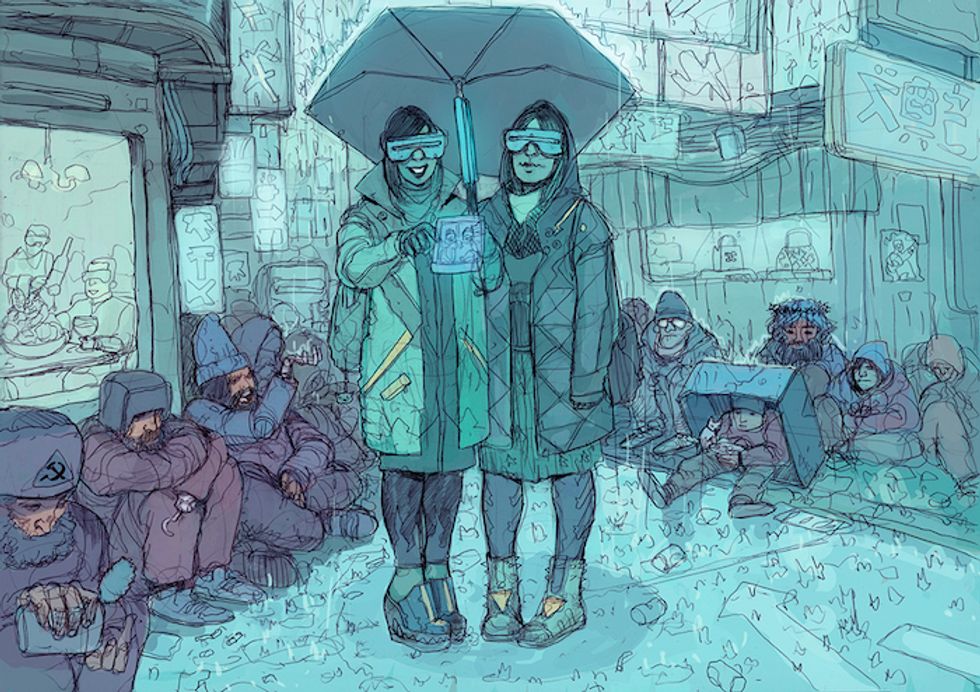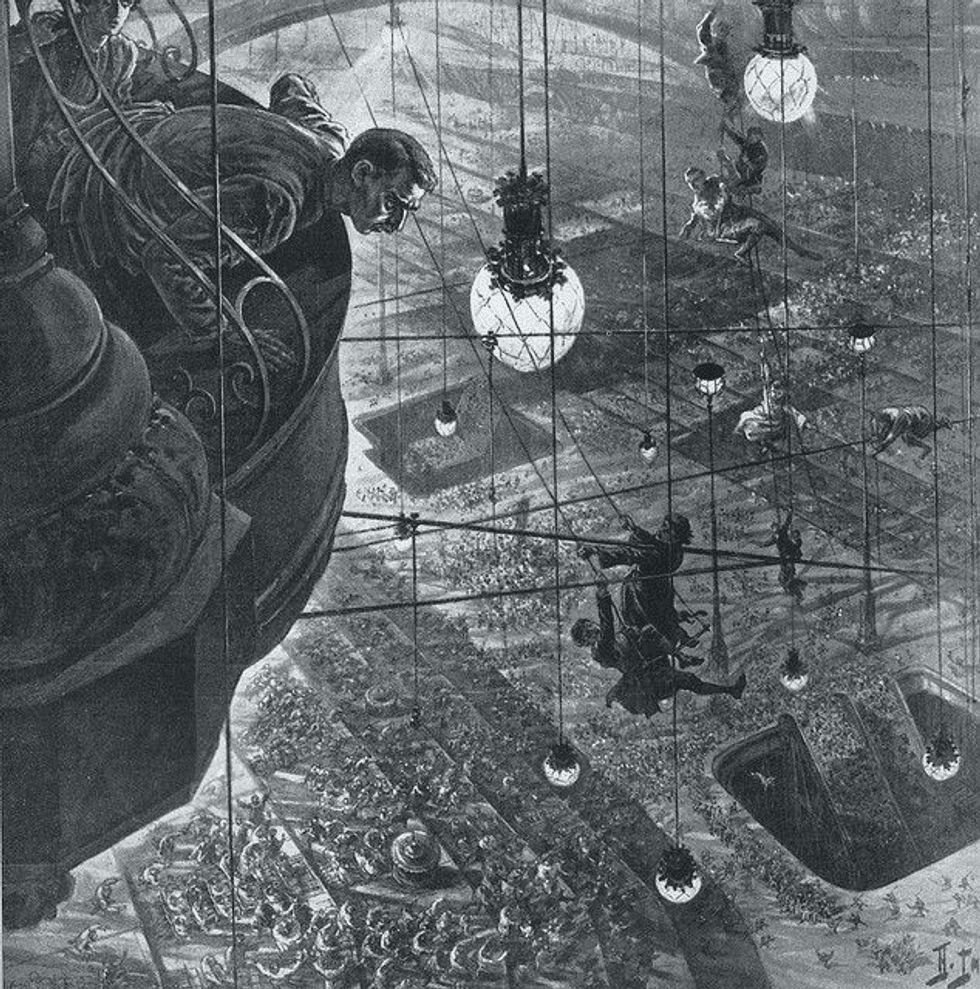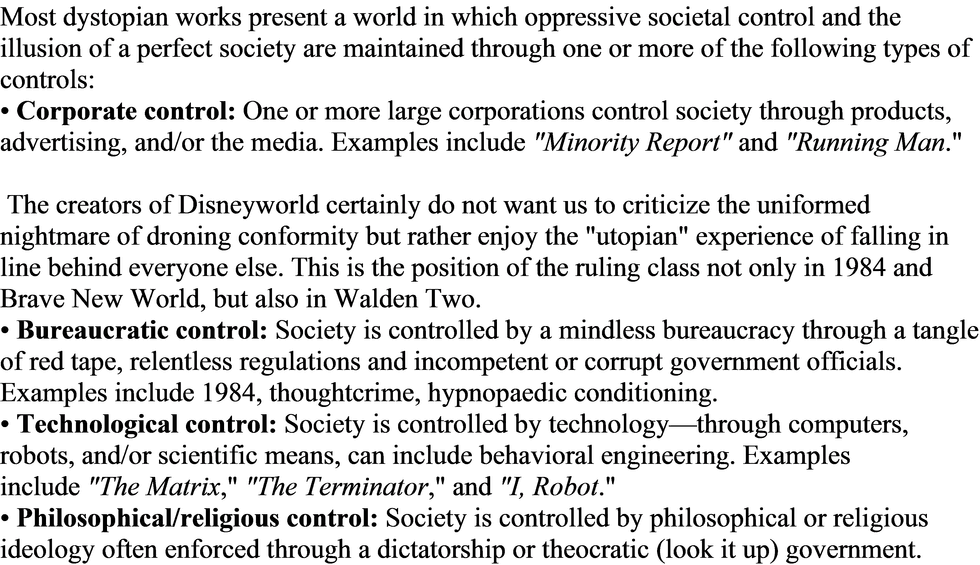A few days ago, I started this new show on Netflix titled Black Mirror, I heard a lot of positive reviews from co-workers and others, so I thought I’d give it a binge-worthy effort.
The series itself, produced by BBC until being bought out by Netflix in September 2015, is a random anthology of short films with each episode a story of its own, set in a dystopian future and a twist to every story. It dwells heavy in emphasizing the dangers of reliance on technology and ease of access, to a point of dehumanization and existential dread by the time the credits begin to roll.
While most, if not all of us immediately begin the “What if.” debate after every episode, I noticed this pattern and began to question not our own faith in our smartphones or evils of social media, but the foundation to which these types of shows back up their plea for self-awareness.
Now I’ll be the first to proclaim my begrudging distaste for social media and its negative effects on conditioning and rewiring of chemical balances. But the situations that TV shows like this hypothesize and put into question can be charming to the pondering eye, but ultimately rubbish. If one were to deconstruct what comprises a dystopia, they would eventually realize: Humanity cannot exist in the presence of a utopia or dystopia, which is why no dystopia, no matter how thorough, could never survive, never tame the chaos.
What is a dystopia exactly?
(courtesy of Jennifer M. Tuzzeo):
Dystopia /disˈtōpēə/:
“A futuristic, imagined universe in which oppressive societal control and the illusion of a perfect society are maintained through corporate, bureaucratic, technological, moral, or totalitarian control. Dystopias, through an exaggerated worst-case scenario, make a criticism about a current trend, societal norm, or political system.”
Dystopias are generally some form of society, created when the centralized or division of states dictate without opposition to the values and morals of the society. These societies are generalized outliers on possible realities where humans have cornered themselves into dehumanization and oppression, often controlled by the very systems they imposed.
Many novels, including 1984, Walden Two, and Brave New World focus on the psychological impacts of dehumanizing modernization instead of external forces (us vs. ourselves), such as superior robots, plague, or the upper class used in most dystopian films and series (us vs. them). Those novels mark mankind’s descent into autonomous existence, like living in Disneyland on fourth of July for the rest of your life (terrifying), while shows are the intermittent balancing act of fear and power in a society’s goal of achieving their ultimately flawed paradise, the disintegration of heroism, etc. Because these authors switch out the usual happy ending we expect, we are instead left with “revelations” of the present and dire warnings of our bleak future.
For a better breakdown of the dystopian type casts, here’s a breakdown (Courtesy of soylentgreene.us)
Show us a dark and bleak “reality” that is sympathized into a hypothetical reality, foreshadow underlying problems in the real world, add a sprinkle of existential dread, maybe a side commentary with a twist, and relight the spark that is human kindness just as you wipe that anomaly out of existence, roll credits.
With exceptions to literature and films masterpieces within the same genre, this cut and paste descriptions accounts for far too many influential pieces today, and it has taken hold of those gullible enough to feed into its flimsy logic. While the Matrix is a definitely a visual mind frag, it doesn’t account for the law of thermodynamics nor fundamental biology.
These shows glisten on paper and may leave the audience in awe as a story spectacle, that’s it. Shows like this are for spectacle, not for fear of the future or our modernized lifestyle.
Simply put, humans are beautiful, inconsistent, fuck-ups.
Humans may not be exemplary in interpersonal connections, but these concepts take us to a radicalized reality that cannot exist. What’s keeping us from our self-served doom? Ourselves, mainly the part of ourselves we fight so hard to minimize, to demonize. Our fears, faults, misguiding’s, all tools that make us humans, our weaknesses holding us back, are the very thing keeping us alive. Humans question everything, and humans fuck up everything, like constantly.
Out of our own ignorance and stupidity, the foundation to how these dystopian societies are started would instead be the very reason it would never start. Because to err is human, our faults determine us just as much as our strengths; our opposition to our destruction coincides with our desire for change, this is the balance.
Humans have short tempers, get bored easily, are self-obsessed, seek sentimentality in every nook and cranny of their life, and would probably get bored of an oppressive centralized government pretty fast. We were never cut out for uniformity, for autocracy. No fascist or purely socialist society has lasted long term without consistent overthrowing and rebellions.
What to take from this?
Accept our own fears and falters, acknowledging the fact that what makes us flawed is what makes indecisive, what inspires us to change, to grow and to fall, especially when in cohorts with one another. A dystopian society relies on autonomous cooperation, just as a utopia does as well. And we all know that’s never going to happen, we suck at getting along, can’t agree on anything.
That might just be our saving grace.
A perfect world requires perfect people, and there are no perfect people. But that is what, instead, makes this world beautiful. What makes us, beautiful.



















